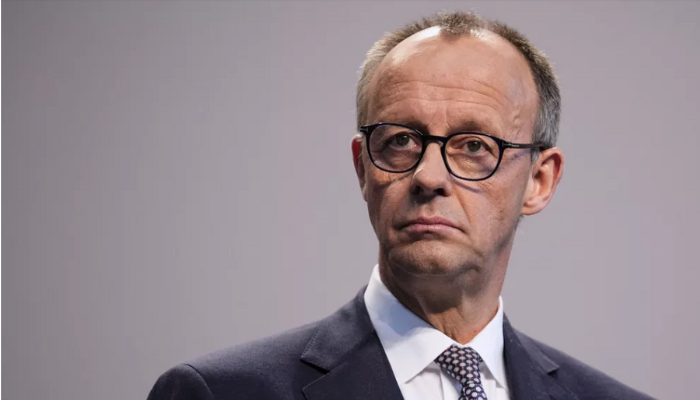
In a crucial political development for Germany, lawmakers are set to vote on Tuesday to determine whether Friedrich Merz, leader of the conservative Christian Democratic Union (CDU), will become the nation’s next chancellor. The vote represents a defining moment in German politics, as Merz seeks to succeed Olaf Scholz, following the collapse of his administration in 2024.
Friedrich Merz: CDU’s Candidate for Chancellor
Friedrich Merz, 64, has emerged as the candidate to lead Germany’s largest political party, the CDU. With the backing of a newly formed coalition, Merz is looking to secure at least 316 votes in the 630-seat Bundestag to win the position of Chancellor. This high-stakes vote could reshape Germany’s future political landscape as it seeks new leadership following a year of political instability.
If Merz secures enough votes, he will assume leadership of Europe’s largest economy, playing a central role in global diplomacy and economic policy. With Germany being a key player in the European Union and the global stage, Merz’s leadership will directly impact Germany’s response to crises such as the ongoing war in Ukraine and the fallout from U.S. President Donald Trump’s trade policies.
Domestic Challenges for Merz
As Chancellor, Merz will need to tackle Germany’s ongoing economic stagnation, a persistent issue facing the nation. His coalition government, which combines the CDU, its Bavarian counterpart CSU, and the center-left Social Democrats (SPD), aims to rejuvenate the economy while managing defense spending and implementing stricter immigration policies. Merz’s team is also tasked with addressing the long-overdue modernization of Germany’s infrastructure and energy policies, a challenge that will require swift and effective action.
Another pressing issue for Merz will be dealing with the rise of far-right political movements, particularly the Alternative for Germany (AfD), which has seen significant growth in recent years. While mainstream political parties in Germany have avoided alliances with the AfD, citing concerns over its extremist views, Merz will need to navigate this growing political threat as part of his leadership role.
The Vote Process and Political Implications
Merz needs a majority in the Bundestag to assume office. Should he fail to secure 316 votes, the parliament will have 14 days to elect an alternative candidate with an absolute majority. If no candidate succeeds in achieving this majority, the German president will have the option to either appoint the candidate with the highest number of votes or dissolve the Bundestag, triggering new elections.
This vote takes place on the eve of the 80th anniversary of Germany’s unconditional surrender in World War II, adding a layer of historical significance to this decision. The ballots will be cast in the Reichstag, a building steeped in history, including preserved remnants of Soviet graffiti from WWII, symbolizing the nation’s turbulent past and commitment to democratic processes.
The AfD Controversy and Merz’s Coalition
The rise of the AfD remains one of the most significant political challenges for Merz. Recently, the German domestic intelligence agency classified the AfD as a “right-wing extremist” party due to its controversial rhetoric against migrants and refugees. This move has sparked international debate, particularly from U.S. officials like Vice President JD Vance and Secretary of State Marco Rubio, who criticized the decision. However, Germany’s Foreign Ministry has stood by its intelligence agency, emphasizing that the decision was made in line with democratic procedures.
Although the AfD remains under scrutiny, it is not banned. Merz has yet to comment on the intelligence agency’s designation, but this issue is likely to remain a critical challenge in his tenure as Chancellor.
Merz’s Coalition: CDU, CSU, and SPD
The coalition supporting Merz is a cross-party effort between the CDU, the Christian Social Union (CSU), and the SPD. This alliance controls 328 seats in the Bundestag, giving it a modest majority. Together, the coalition aims to address several key issues, including economic growth, defense modernization, and immigration reform. It marks a return to coalition politics between the CDU and SPD, a relationship that dates back to the 1960s and has been part of Germany’s governance in several terms under Chancellor Angela Merkel.
The coalition’s primary objectives will include stimulating Germany’s economic recovery, strengthening its defense capabilities, and modernizing critical sectors, such as technology and infrastructure. The coming months will likely see intense political debates as Merz’s government sets its priorities and navigates these complex issues.
A Pivotal Moment for Germany’s Future
The vote on Merz’s chancellorship is not just a matter of political strategy—it’s a moment that will define Germany’s future direction. The outcome of the vote will impact the country’s approach to international relations, economic policy, and social challenges, including the rise of far-right extremism. With Germany’s leadership poised to shift, all eyes will be on the Bundestag as lawmakers decide who will guide the nation through its next chapter.
As the political landscape continues to evolve, Merz’s leadership promises to be a defining factor in Germany’s role on the global stage and its ability to navigate both internal and external challenges.
